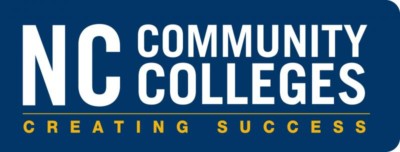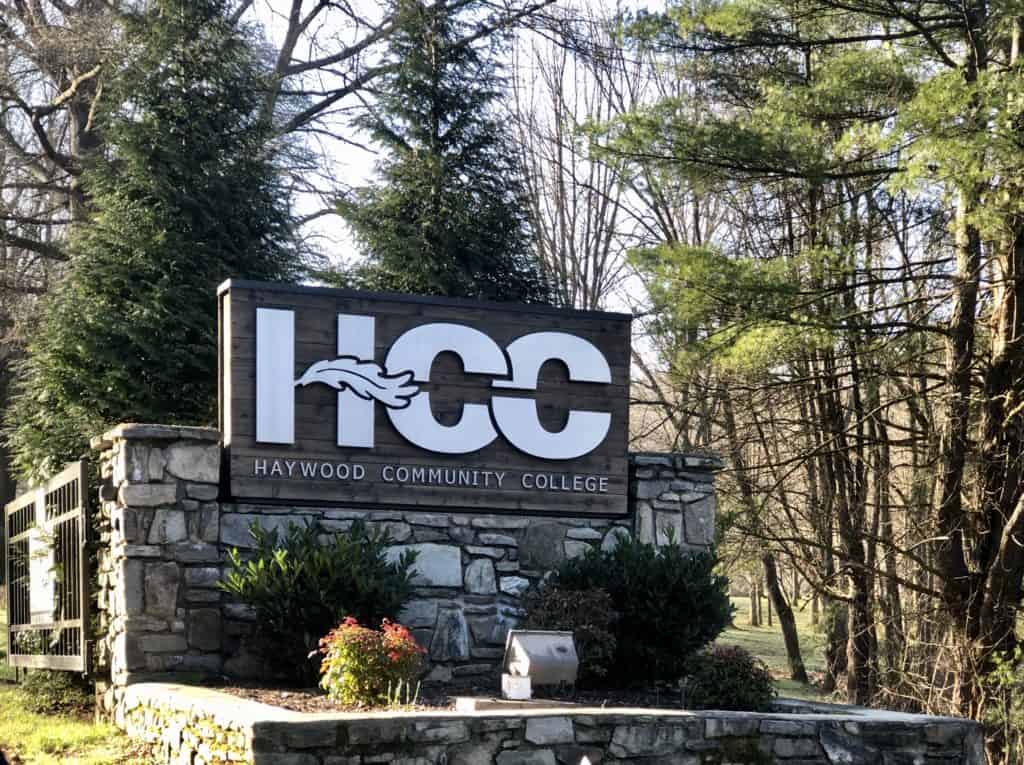

Arriving at Haywood Community College, I was so taken by the beauty of the campus that I almost forgot about COVID-19 entirely. That was until Dr. Shelley White introduced herself, and my colleague and I found ourselves deciding between going for a head nod or the new elbow high five that seems to be catching on.
Visiting a community college during a global pandemic is an experience I’ve never had before. On the day we visited Haywood Community College (HCC), the UNC System had just announced that they were moving instruction online. Community colleges were reacting to that news but still figuring out their plan. While talk of COVID-19 was present throughout the day, it was certainly outshone by the jam-packed tour we had of Haywood’s wooded campus.
Nestled in the mountains and trees of western North Carolina, Haywood Community College has been serving students for more than 50 years.
Ask anyone around campus, when they say they go to Haywood, people know exactly what they’re talking about.
HCC has established a name for itself through its nationally recognized programs in crafts, forestry, and fish and wildlife. These programs both reflect the unique culture and heritage of the area and draw people from across the country to attend the college.
HCC is relatively small, with total full-time enrollment in 2018-19 of 1,723.3. Small size can be seen as a weakness for colleges that rely on enrollment numbers for funding. HCC, however, has turned it into a strength, focusing on individualized instruction, strong student-faculty relationships, and creating a family atmosphere that pervades the campus.
Nationally recognized programs
Walking through the halls at HCC, you’re met with intricate pieces of pottery and woven tapestries, all made by students. The professional crafts, forestry, and fish and wildlife programs set Haywood Community College apart from other schools in the state.
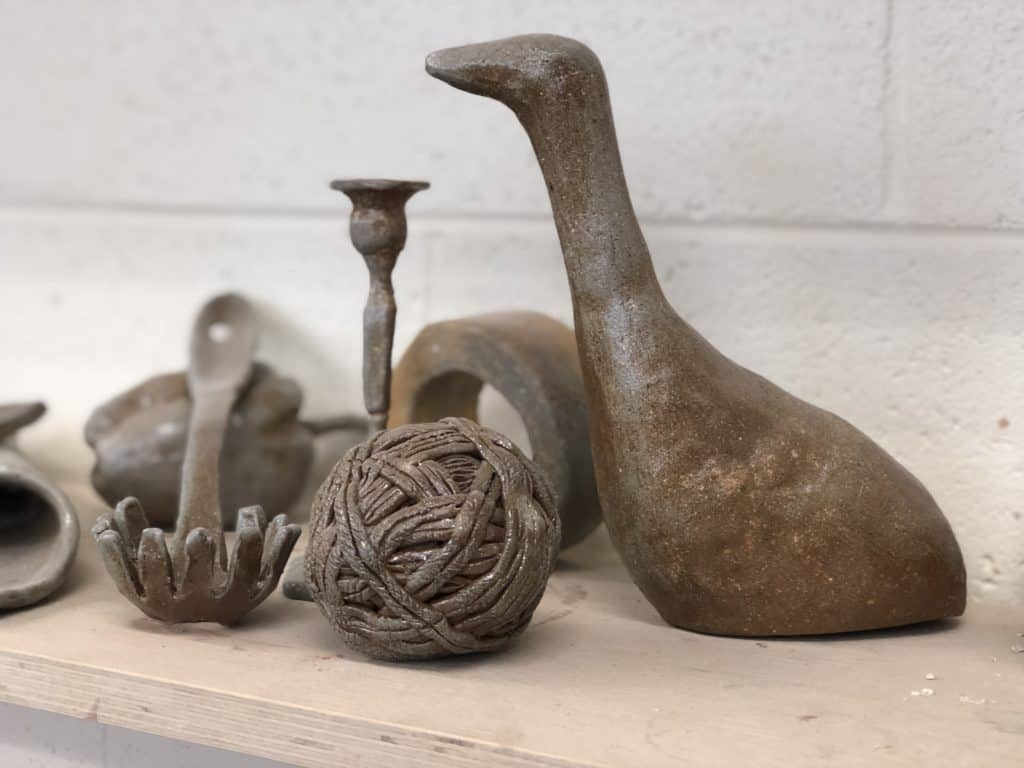

There are four concentrations within the professional arts program at HCC:
- Clay
- Jewelry
- Fiber
- Wood
The reputation of these programs is strong in the community. Many students find the professional crafts program at HCC through referrals, oftentimes from meeting artists in the area who have graduated from the college.
“I knew a few professional potters in the area,” said Michele DeAngelis, a student in the clay program, “and I asked them, ‘Where would you go?’ And they went to Haywood. Hands down, all of them said Haywood.”
The fish and wildlife program also benefits from referrals. One student, Parker Grandy, said he found the program through a family friend.
“I have a good family friend who works as a wildlife officer in North Carolina who recommended me to the school,” Grandy said. “I showed up here two weeks before classes, found out they had a great curriculum, great professors, and a great area. I signed up right then and there.”
We toured all four of the crafts programs, and in each department you’ll find passionate instructors and curious students honing their skills. Jewelry instructor Robert Blanton gave us an overview of the program.
Historically, the student base for the professional crafts program comes from further than their service area of Haywood County, Blanton said. In fact, people have come from all over the country for the professional crafts program.
“There are numerous people that have moved here from other states and just from other areas of North Carolina,” Blanton said. “Once they finish the program, they start their businesses here, and they stay local,” he added.
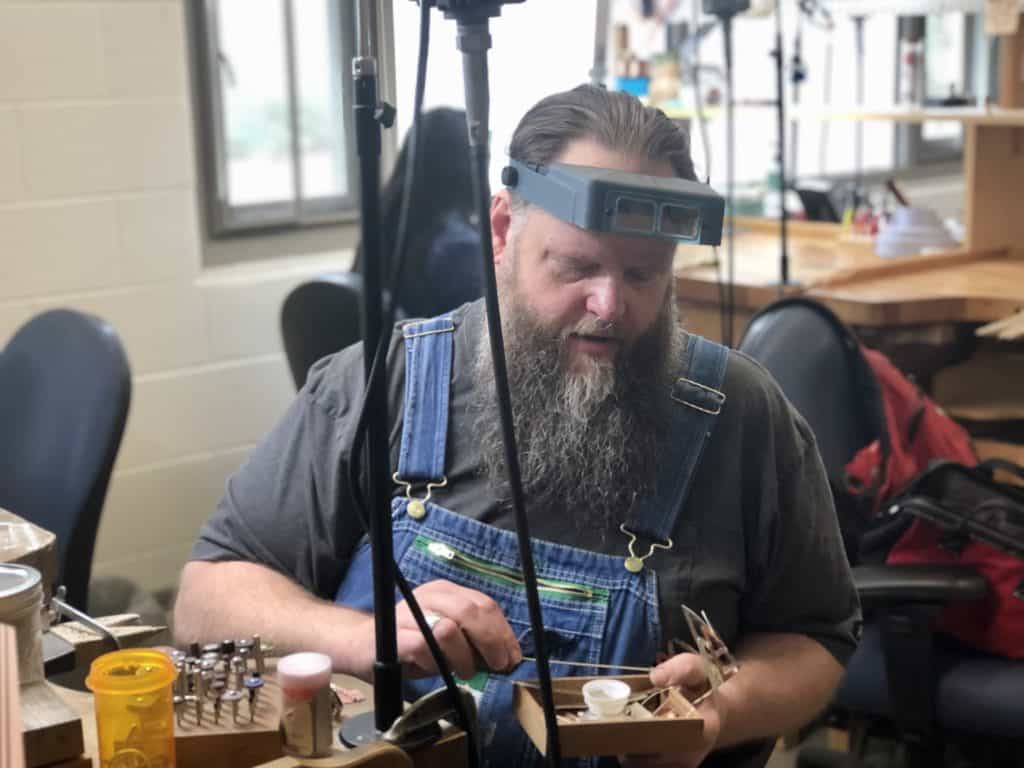

Blanton believes the professional crafts program has gotten such a good reputation partly due to the instructors. HCC’s faculty are passionate experts in their respective fields within the craft community. Some of their faculty have been at HCC since the program started more than four decades ago, Blanton said.
“I think the first faculty, they were all here until they retired … and some of them were in their early 20s when they started,” Blanton said. “That kind of consistency in an educational system is almost unheard of,” he explained, “and I think that’s what has propelled us to 43 years.”
These programs have a positive economic impact on the greater western North Carolina community. Thanks to HCC’s focus on marketing and business in addition to learning the craft, students learn how to make their craft talent viable in the marketplace once they graduate. In fact, all students are required to create a business plan in order to earn their degree.
When these students graduate, many of them stay in western North Carolina and start businesses that positively impact the community.
DeAngelis has a plan for starting her pottery and sculpture business once she graduates.
“That’s one of the reasons Haywood is so great,” DeAngelis said. “They teach the business and entrepreneurial side, so they help you with a portfolio, website, [and] teach you what to do once you graduate, which is huge.”
As she made her business plan, DeAngelis said there were questions in the assignment she didn’t know she needed to ask. “I’ve actually gotten a few degrees previously, and afterwards I felt sort of like what do I do now … [Now] I’ve got steps. I’ve got it written out.”
What are those steps? Once she graduates, DeAngelis plans to start a home studio with equipment she’s already begun acquiring. She already knows of a few craft vendors she wants to work with, and she has a list of venues and galleries where she plans to send her sculptures for exhibitions. She’s also working on a website for e-commerce.
“I’m going to do a lot,” she said. “I’ve got a two-year plan.”
Small size
The opportunity for a community college education with individualized instruction and small class sizes benefits both the teachers and students at HCC. When Blanton interviews students, which is part of their application process, he tells them:
“You’re getting a grad school experience at a community college tuition.”
Blanton is proud of the fact that, in his words, “You’ll never see two students graduating from here and their work alike.”
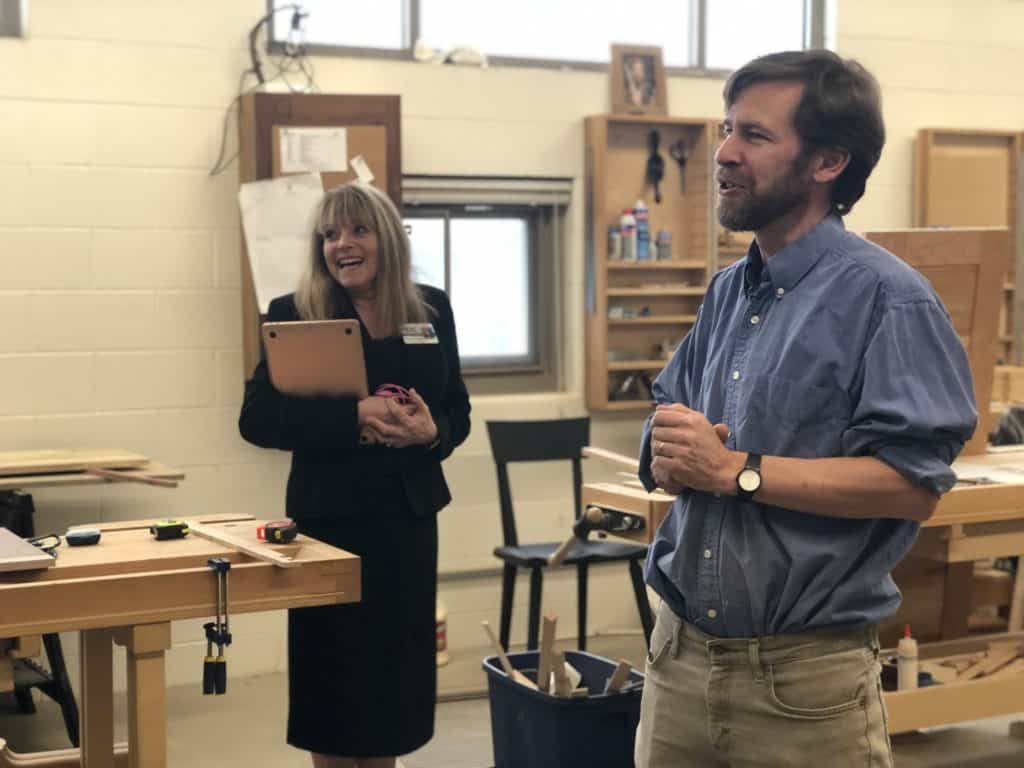

Most programs at HCC have one to two faculty, so students are able to form strong bonds with their instructors. This relationship often enables the instructor to encourage the student to continue their educational path at HCC.
“A lot of students in our county are first [generation college students],” said Wendy Hines, vice president of instruction. “It doesn’t seem as daunting for them to do a certificate than the whole program top to bottom. We ease them in with a certificate, which doesn’t have [general education requirements] and then they kind of get integrated into the cohort and they get attached to our faculty, which is our best secret weapon.”
“If you bond with that faculty,” Hines continued, “you want to stay.”
The importance of strong relationships can also be seen in another unique aspect of HCC, the lumberjack team. Most community colleges have few, if any, sports teams, and most are not lumberjack teams. The HCC Lumberjacks compete in events that involve saws, axes, and timber logs. In 2019, the HCC Lumberjacks took first place in the John G. Palmer Intercollegiate Woodsmen’s Meet.
Team coach Alex Storm explains the history of the event. “One of our previous faculty members started this annual event where all of these schools from the area come and compete in these events,” he said. “And we just get to immerse them into this history and the beauty of western North Carolina. ”
Multiple students said they joined the Lumberjacks because they were looking for the same experience and sense of belonging that they had with their team sports in high school. Others just wanted a way to blow off some steam at the end of the day. Regardless, the HCC Lumberjacks team brings students together who, through the challenges presented by timbersports, become friends and then family.
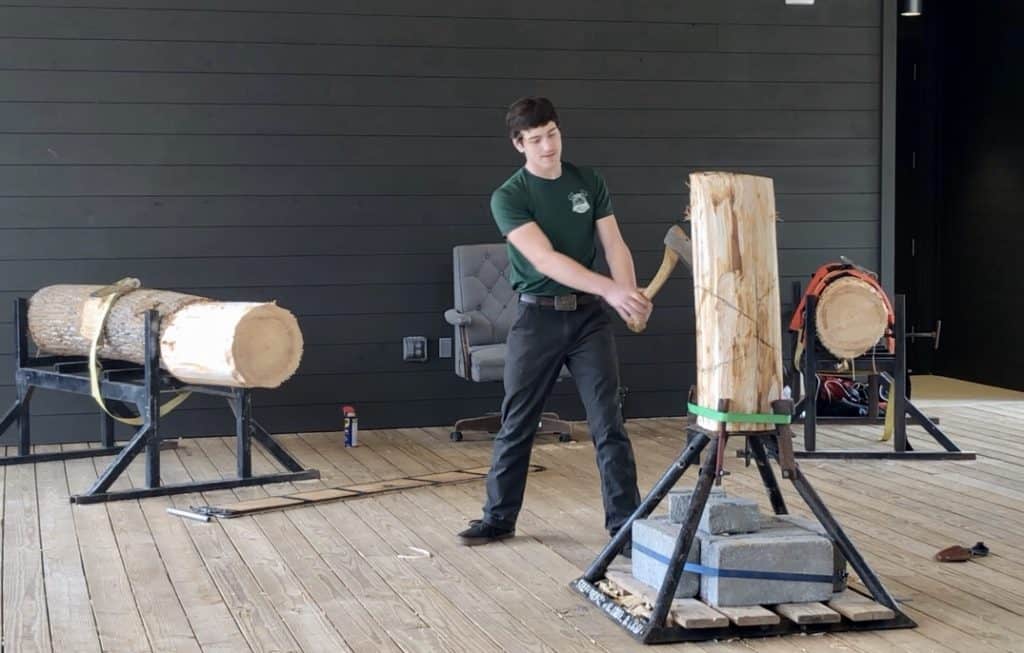

The class sizes, individualized instruction, and unique sports opportunity all contribute to making HCC feel like a family. It’s no wonder that “come be a part of our family” is one of HCC’s main marketing messages.
“My observation about the scene here at Haywood is that our cooperative spirit is off the charts,” says Shelley White, who became president of HCC on January 1, 2020. “It doesn’t matter what department you’re in, what you know, what your role is, everyone’s willing to come to the table and do what it’s going to take for us to get the job done to do what’s best for students.”
Strong roots don’t prevent challenges
Haywood has its legacy of professional crafts and forestry to anchor its identity, but strong roots don’t prevent challenges. We sat with Haywood’s leadership team over lunch, and they explained some of the hardships the school faces on a regular basis.
One of those issues is that many of the students in the crafts programs are older adults. HCC is working to market more to high school graduates and a younger demographic.
White explained that awareness about the college and accessibility are still issues. She said, “Something I’ve seen from students here is realizing for the first time that ‘oh, college is accessible to me.’”
Students are realizing this, White and others explained, as a result of HCC’s new tuition free guarantee, which is a last dollar scholarship for qualifying high school graduates (public, private, or homeschool) from Haywood County. To qualify, students must have a minimum unweighted high school GPA of 2.8, enroll full-time at HCC, complete the FAFSA and HCC scholarship applications, and have a career planning meeting before enrolling.
As a last dollar scholarship, the tuition free guarantee requires students to use financial aid and other scholarships first before it will pay for tuition and fees. As a result, the school has only paid for 30 students’ tuition through the tuition free guarantee so far. Instead, the guarantee has acted as a signaling device to show students that college is accessible for all.
Maggie Mehaffey, HCC student and Student Government Association President, came to Haywood because of the tuition free guarantee.
“My dad lost his job, I guess it was probably in 2016. I’ve always been an independent kid, and I didn’t want my parents to have to pay for my school,” Mehaffey said. “HCC ended up offering a tuition free guarantee for students who graduated from the schools in Haywood County with higher than a 2.8 GPA. So, I picked HCC because it was free and I can get the same degree that everybody else was getting at any other university.”


Another challenge for HCC is the tier designation system. Each year, the North Carolina Department of Commerce ranks the state’s 100 counties based on economic well-being and assigns each a tier designation. The tier system impacts various state programs and is intended to encourage economic activity in the less prosperous areas of the state.
County Tiers are calculated using four factors:
- Average unemployment rate
- Median household income
- Percentage growth in population
- Adjusted property tax base per capita
Then, the state ranks the counties and assigns tiers: “The 40 most distressed counties are designated as Tier 1, the next 40 as Tier 2, and the 20 least distressed as Tier 3.”
Haywood is designated as a Tier 3 county. “This county is listed as one of the higher tiers mostly due to a few pockets of some high-end housing and property values that are mostly not full-time citizens of this county. These second homes skew it,” Hines said. “Because when you look at the majority of our citizens, they’re not living an upper tier life at all. But then as a school, when we apply for grants, or programs at the state level, they say, oh, you’re too high of a tier, you’re not qualified.”
According to the County Health Rankings, 56% of K-12 students in Haywood County qualified for free and reduced lunch in 2016-17. For comparison, 34% of K-12 students in Wake County qualified for free and reduced lunch, and it is also a designated Tier 3 county.
One impact of the Tier 3 designation HCC has experienced this year has to do with career coaches. Because they are a Tier 3 county, they have to match the funding from the state one-to-one for new career coaches, whereas colleges in Tier I counties do not have to provide any funding for career coaches.
HCC ended up being able to pay for career coaches through their $15 million endowment, which they are grateful for. However, the endowment is mostly tied to scholarships, HCC leadership said. It does allow them to counter the effects of their Tier 3 designation somewhat, but not entirely.
Making hard decisions
Our visit at HCC ended with us sitting in on a statewide community college system call to address COVID-19. There was discussion of extending spring break and transitioning to online learning. As of today, HCC has moved its spring break to run March 16 through March 20 for all students, and all seated curriculum classes will move online starting on March 23rd. You can find HCC’s full statement on COVID-19 with regular updates here.



